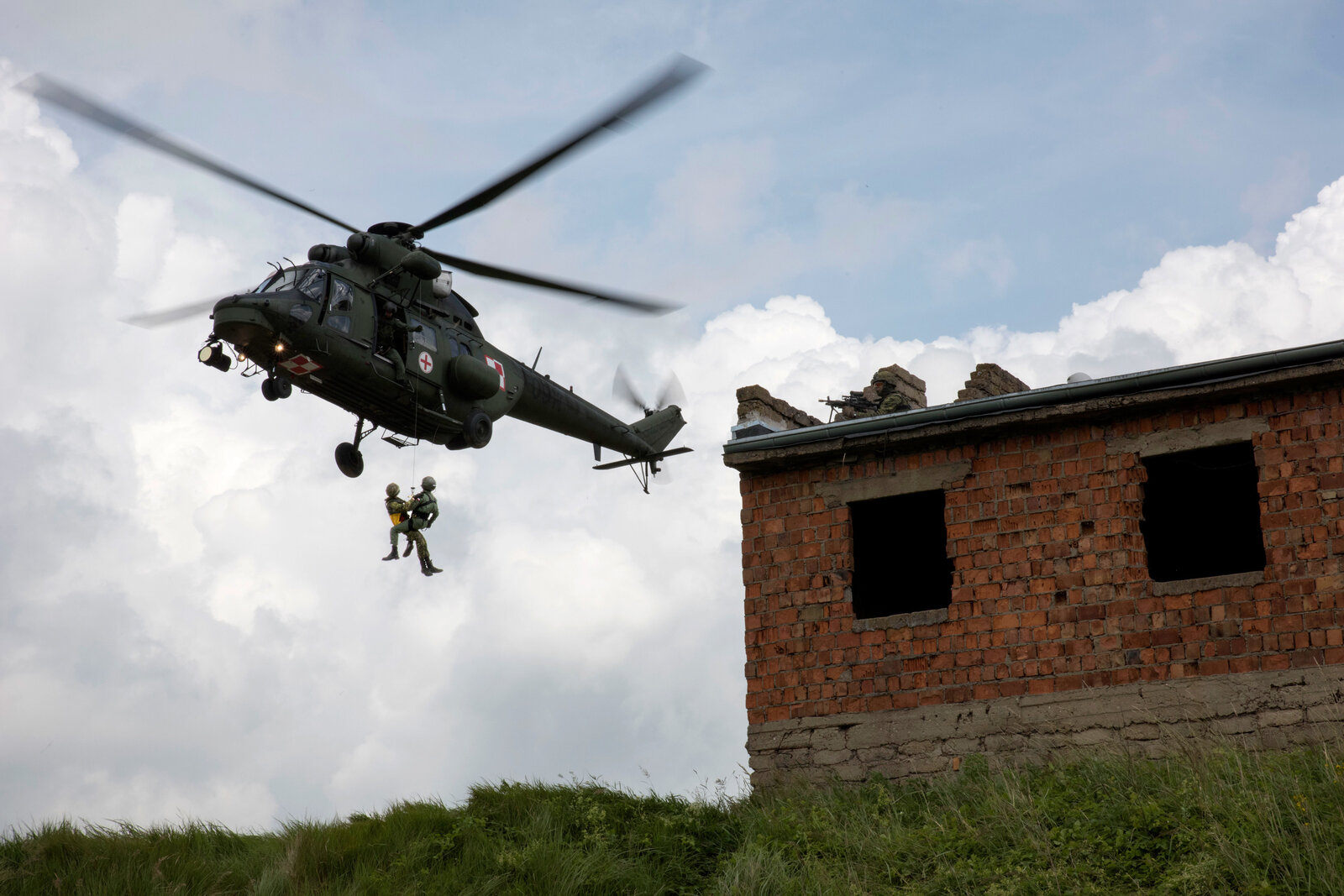By Sarah Lafen
Impunity Watch Desk Reporter, Europe
WARSAW, Poland — On Friday, the Northern Atlantic Treaty Organization (NATO) wrapped up a 10-day training exercise simulating a Russian attack on Poland. NATO sent over 30,000 troops, military vehicles, aircraft, and ships from over 20 countries to the military base in Wederzyn, Poland to take part in military drills and exercises. This joint-military effort is the largest since the end of the Cold War, and is a part of Anakonda 2016 – a Polish national exercise which seeks to train national forces into an allied, multinational environment.

American units, as well as non-NATO forces such as Sweden and Finland, participated in the training drills in Poland. Drills included collaborative helicopter attacks which included communications between Polish pilots and American air traffic controllers, hiking through dense forests, clearing houses room-by-room, and live fire drills. The goal of these training exercises was to train Poland, along with other Eastern-European forces which used to be allied with the Soviet, to work together with the United States and Western European troops.
Many view the joint-military effort as one of prudent preparation. Polish Defense Minister Antoni Maciarewicz states that they now feel prepared for “the worst” and for “any bad eventualities.” Evelyn Farkas of the Atlantic Counsel characterized this joint-military effort as one which will send a message to Russia that NATO is prepared to respond if Russia attempts to “step…into one of our allied countries.” NATO spokesperson Oana Lungescu said the alliance has maintained communication with Russia throughout Anakonda 2016, however “practical cooperation” has been suspended since the 2014 annexation of Crimea.
Some leaders view the preparation and training as dangerous. John Mearsheimer, a University of Chicago political scientist who specializes in European security issues, calls the training a dangerous “poke at the Russian bear,” and thinks it will be perceived by Russia as a threat which will give them more motivation to invade the Baltic States. German Foreign Minister Frank-Walter Steinmeir categorized the NATO training as “counterproductive to regional security,” and instead urged NATO to replace the training drills with more cooperation with Russia.
Russia has also spoken out against Anakonda 2016. Vladimir Putin’s press secretary, Dmitry Peskov, told reporters that the “war games” of Anakonda 2016 “do not contribute to the atmosphere of trust and safety on the continent.”
For more information, please see:
NBC — Huge NATO Drills in Poland Prepare West for Possible Conflict with Russia — 19 June 2016
BBC — German Minister Warns NATO Against ‘Warmongering’ — 18 June 2016
NPR — NATO War Games in Poland Get Russia’s Attention — 17 June 2016
U.S. Army Europe — What is Anakonda?